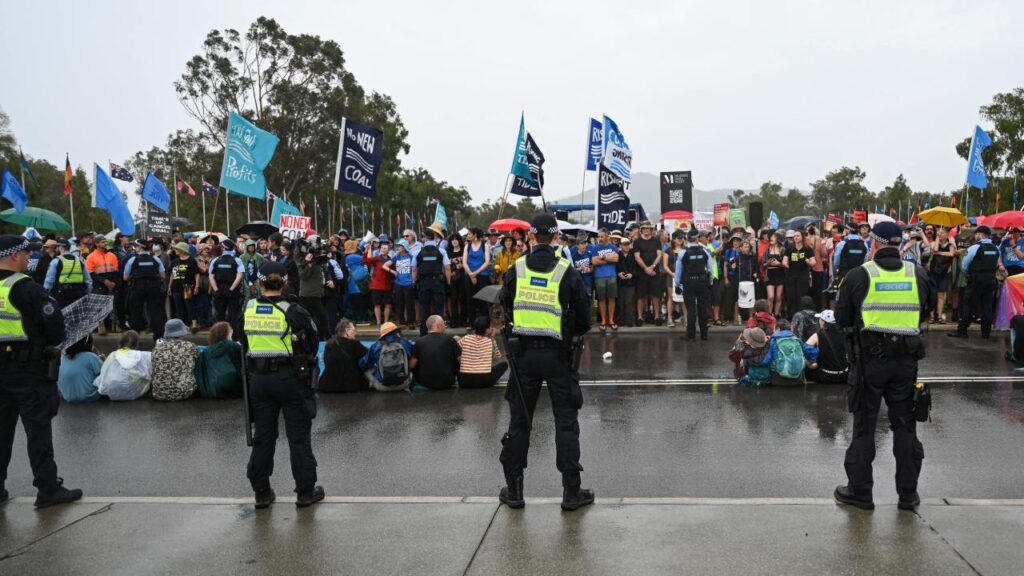In Canberra, more than twenty protesters from the group Rising Tide were arrested after blocking a road leading to the Parliament House. This action follows a previous confrontation with the police in Newcastle. The activists aim to draw attention to fossil fuel projects by demanding the immediate cancellation of any new projects and an end to coal exports by 2030. This movement highlights a growing willingness to resort to civil disobedience to call on the government about the climate emergency.
More than 20 protesters from Rising Tide have been arrested for blocking a road leading to the Parliament House in Canberra. This event followed an action where 173 activists were arrested in Newcastle for disrupting the Port of Newcastle, the largest coal port in the world. The protests, intended as acts of civil disobedience, aim to push the government to cancel fossil fuel projects and support the transition to renewable energy. The group is also calling for the introduction of a high tax on coal export profits to fund this transition. These movements come amid heightened tensions with authorities, who have increased accusations against the protesters, focusing attention on the necessary balance between public safety and the right to protest.

arrest of Rising Tide protesters in Canberra
More than 20 Rising Tide protesters were arrested in Canberra for blocking access to the Parliament House. These individuals were part of a group that came down from Newcastle to protest against fossil projects and demand a transition to renewable energy. The protesters chose this action to draw attention to the climate emergency, hoping to influence government decisions.
With hundreds of people gathered on the lawns of the Parliament House, security was heightened. The main entrance was briefly closed to the public. Among the protesters, about a hundred blocked the road, while a group of 50 individuals occupied the entrance hall. This action was seen as a way to pressure the government to listen to their concerns and take action.
reactions from protesters and authorities
The organizer of Rising Tide, Alexa Stuart, 21, stated that the government’s lack of listening drives these activists to such actions. Mostly young, some expressed their anger at the climate inaction, illustrating their words with the natural disasters that have personally affected them. The main demand addresses the government to eliminate new fossil projects and stop coal exports by 2030. They also advocate a 78% tax on coal export profits to fund the energy transition.
support and opposition
The city of Sydney has positioned itself in favor of Rising Tide by adopting a motion that includes a donation of 22,000 dollars to the organization. This decision also aims to pressure the government to abolish the anti-protest laws deemed excessive. Support has been confirmed by five unions opposing the new restrictions targeting protests. The mayor of Sydney, Clover Moore, stated that climate change is an existential threat, emphasizing that efforts to criminalize activists are unacceptable. The laws impose up to two years in prison or a fine of 22,000 dollars for blocking ports and major infrastructure, the same amount as the donation made by the municipality.
Articles similaires
Thank you!
We will contact you soon.














